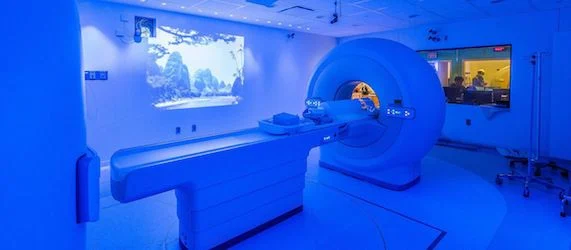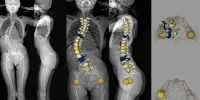Texas Children's Hospital has announced that it is the first children's hospital in the United States to begin using a PET/MRI scanner.
PET/MRI incorporates MRI soft tissue morphological imaging and PET functional imaging. The device sequentially performs PET and MRI scans, producing more detailed images than either technique alone. Hybrid PET and MRI scans eliminate the need to move patients from one imaging unit to another, making it easier to combine data from both scans to produce enhanced details.
"We are excited to be able to offer this technology to our patients through a clinical trial. To be able to study the structural and functional changes in the body may allow us to detect abnormalities, even before the clinical symptoms of a disease begin to show," says Dr. George S. Bisset III, chief of pediatric radiology at Texas Children's Hospital, professor of radiology at Baylor College of Medicine and immediate past president of the Radiological Society of North America. "This technology holds so much promise and we are anxious to see where it takes us."
According to multiple research papers written on the PET/MRI scanner, it is reasonable to expect that PET/MRI will provide new insights in the field of neuroscience and neurologic disorders, such as neurodegeneration, brain ischemia, neuro-oncology and seizures. It will also be used to diagnose many other illnesses, including head and neck tumours, many types of cancer, liver tumours, pelvic tumours, musculoskeletal tumours and heart diseases.
Until recently, scientists could not integrate PET and MRI scanners because powerful MRI magnets interfered with the imaging detectors on the PET scanner. PET/MRI may be able to replace the PET/CT scans now used to investigate cancers and other problems in pediatric patients. If so, PET/MRI scans will expose patients to significantly less radiation dose than that required for PET/CT scans.
"Radiation exposure is a source of concern for any patient, but it has to be watched with particular care in paediatric patients who are still growing and developing," Bisset adds. "An opportunity to get information essential for medical care at half the radiation exposure would be particularly welcome both in pediatric patients and in adults who need multiple scans during treatment."
The imaging facility also includes a Kitten Scanner, a small-scale simulated version of an MRI scanner that helps reduce children's anxiety about an exam. Children can choose a toy to scan, put it on the miniature patient table and push it through the opening, watching the flat panel display which presentsa short story explaining how a scanner works and why the exam is needed and seeing the "insides" of the toy on the screen.
Image credit: PRNewsFoto/Texas Children's Hospital
Latest Articles
MR-PET, Paediatrics
Texas Children's Hospital has announced that it is the first children's hospital in the United States to begin using a PET/MRI scanner. PET/MRI incorpora...










